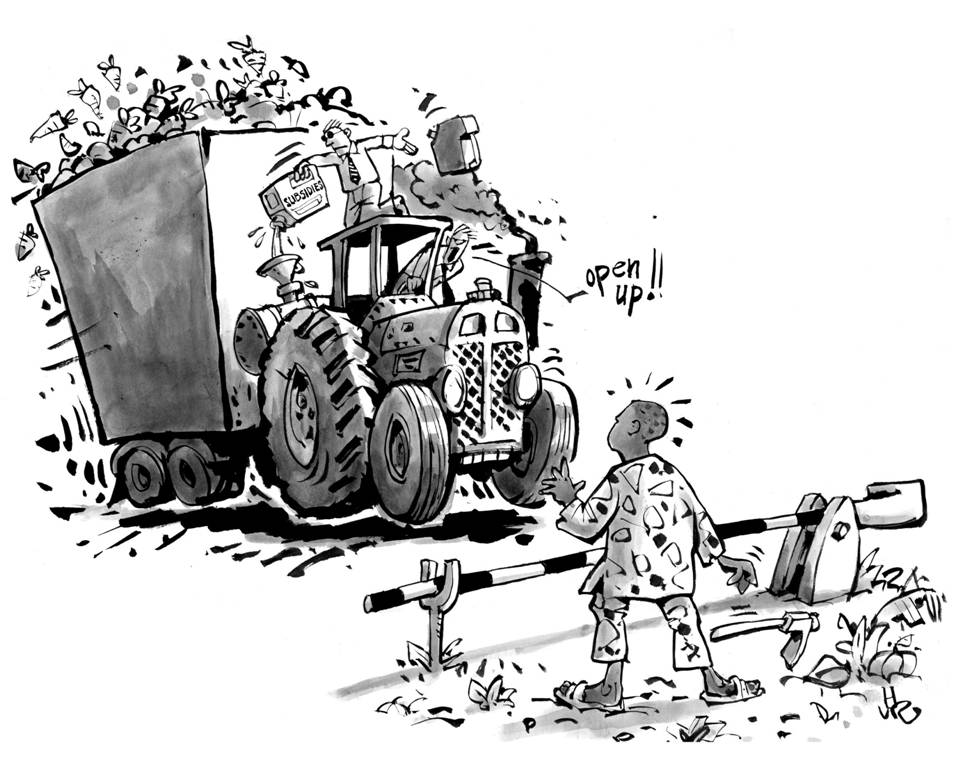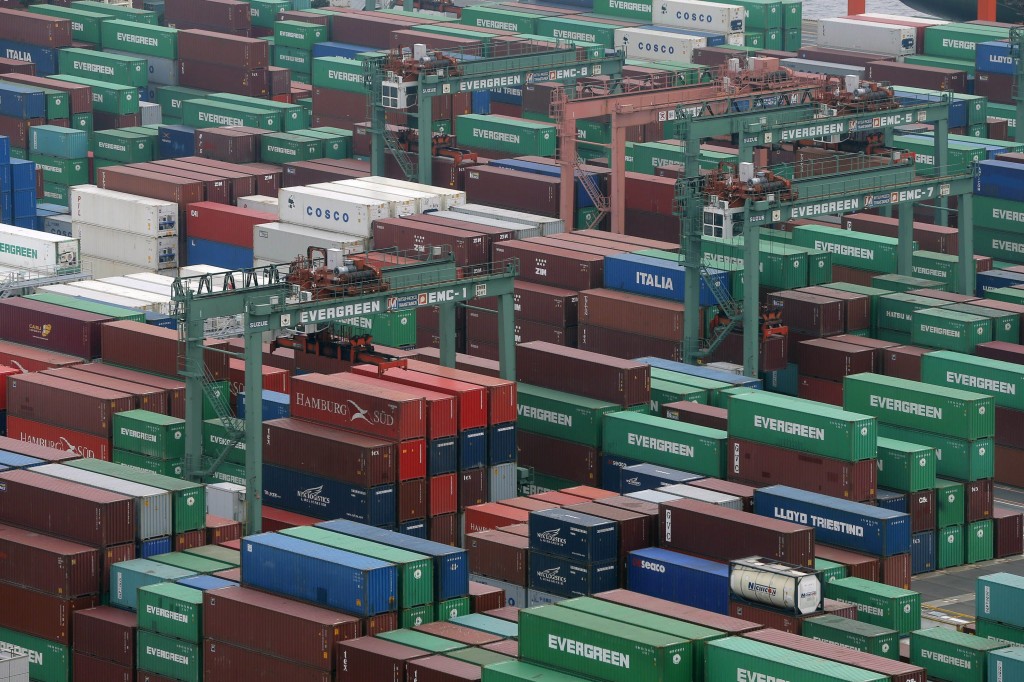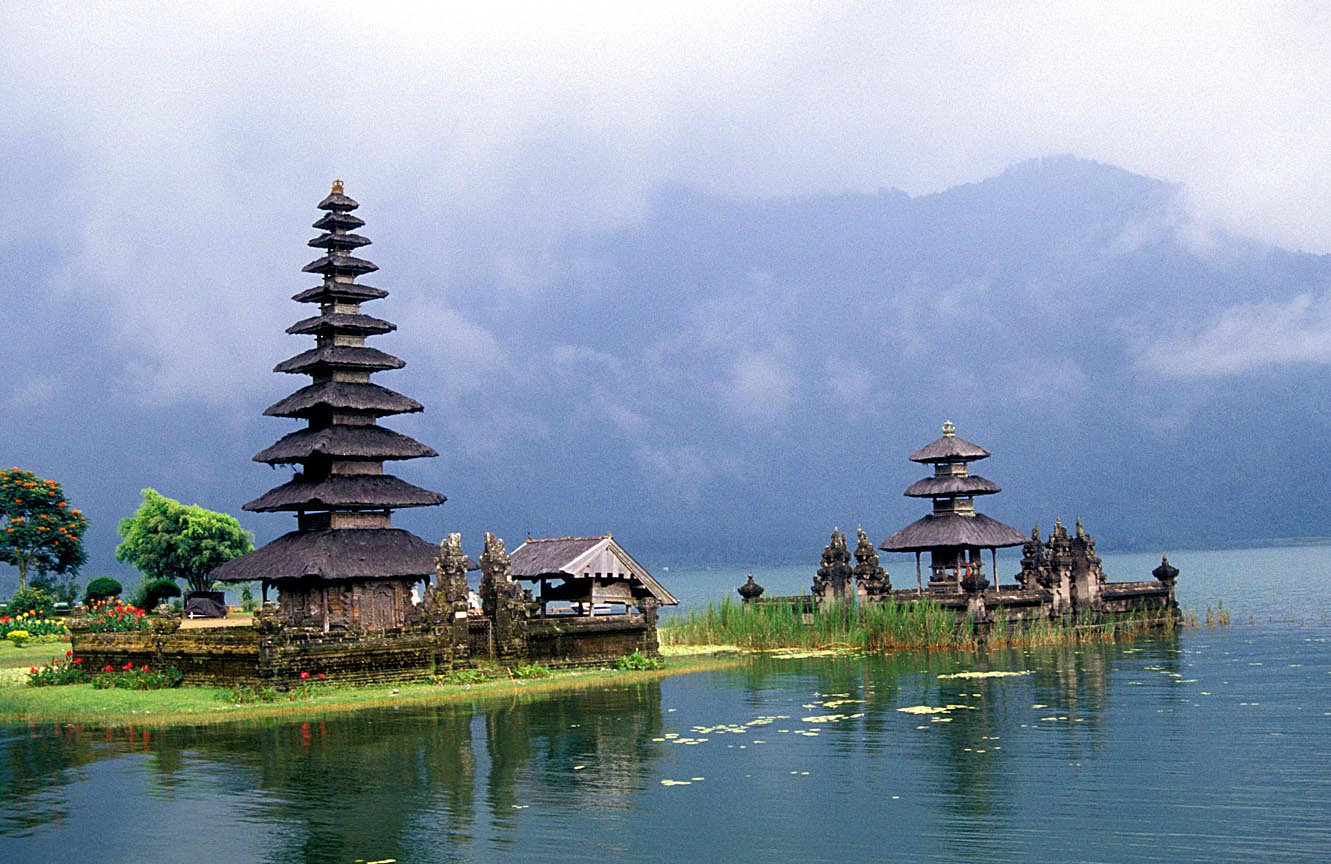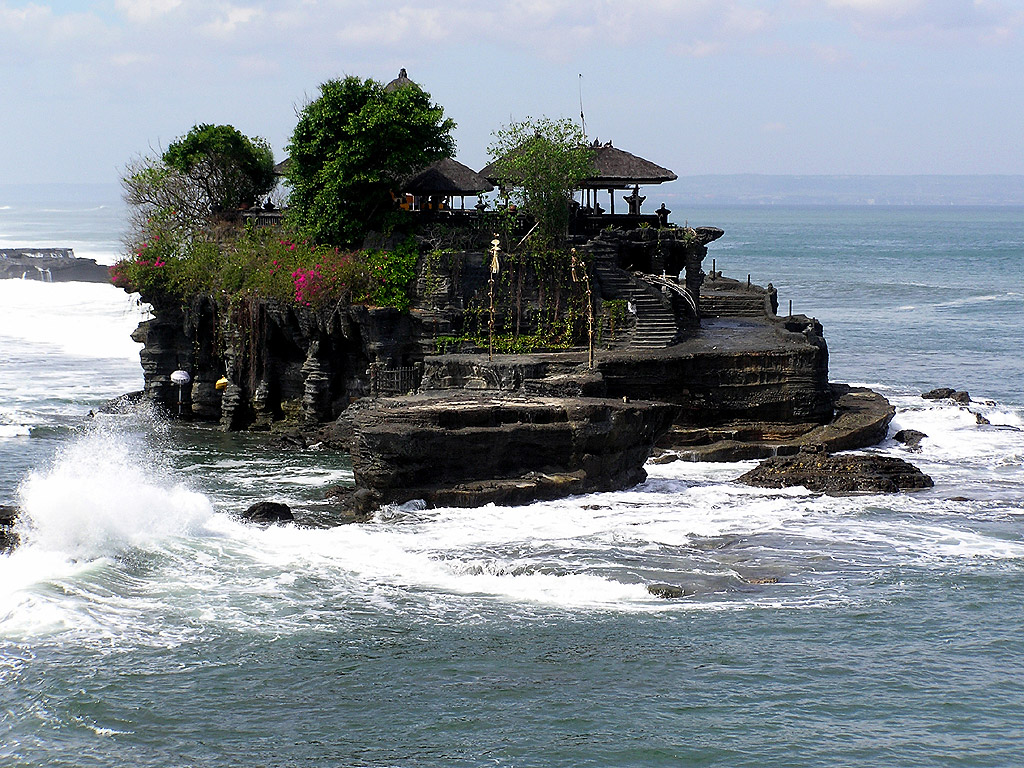As long as I have been commenting on the CAP, its most criticized feature has been its use of export subsidies, also called export refunds. In the late 1980s and early 1990s, the EU was spending €10 billion a year on export subsidies, almost one-third of the CAP budget, in order to allow traders to get rid of the EU’s growing export surpluses by paying the difference between the EU’s high internal prices and lower world market prices.
Export subsidies allowed EU exporters to grab market share in import markets from competing exporters, put downward pressure on the level of world market prices, and competed unfairly with local producers in many developing countries.… Read the rest
Forum for the Future of Agriculture 2015 – Remarks on EU agricultural trade policy
The 8th Forum for the Future of Agriculture (FFA2015) was held yesterday in Brussels. This annual meeting, organised jointly by the European Landowners’ Association and Syngenta, attracts around 1400 participants and has established itself as one of the principal fora for debate on the future of agricultural policy. What makes the event interesting is that it attracts a good number of participants from among farmers and the agri-business sector while also being open to environmental NGOs and others critical of current agricultural practices.
The theme for yesterday’s meeting was the UN Sustainable Development Goals and possible implications for EU agriculture, with contributions from both Commissioners Hogan (Agriculture) and Vella (Environment, Maritime Affairs and Fisheries).… Read the rest
The Doha Round is back on track
On Thursday 27 November 2014 last, the WTO General Council approved three decisions related to public stockholding for food security purposes, the Trade Facilitation Agreement and the post-Bali work programme. With these agreements the hiatus in the WTO’s post-Bali work caused by India’s position on the 2013 Bali Ministerial Council decisions has been unblocked. India had demanded a commitment to faster progress on finding a permanent solution to the treatment of official procurement prices for food security stocks under domestic support disciplines, as well as the copper-fastening of the terms of the interim peace clause, in return for its willingness to approve the Protocol of Amendment to allow the Trade Facilitation Agreement to come into effect.… Read the rest
WTO failure on trade facilitation agreement puts question mark over Doha timeline
On Thursday this week, the WTO Director-General Robert Azevêdo admitted to failure in concluding the negotiations to adopt the Protocol of Amendment on the Trade Facilitation Agreement (TFA) by 31 July as had been agreed by Ministers at the WTO Ministerial Conference in Bali last December. The Protocol of Amendment was intended to start the process to formally insert the trade facilitation deal into the overall WTO Agreement.
The TFA was part of a carefully-balanced package at Bali designed to get substantive negotiations on the Doha Round again underway. In addition to a series of decisions and declarations on trade facilitation, agriculture, cotton, development and least developed country (LDC) issues, the Ministerial Conference had set a deadline of the end of 2014 for the Trade Negotiations Committee to develop a clearly-defined work programme on the remaining Doha Round issues.… Read the rest
Life after Bali for the WTO Doha Round
Some weeks ago I discussed the prospects for a Doha Round mini-package at the next WTO Ministerial Council meeting in Bali in December, and I explained the proposals making up the agricultural elements of that mini-package. A recent paper produced jointly by the Geneva-based International Centre for Trade and Sustainable Development (ICTSD) and the Food and Agriculture Organization (FAO) also provides a useful introduction to the agricultural issues at stake in the Bali talks.
Since then, the Chair of the agricultural negotiations has provided a status update on the progress towards agreement on this mini-package. It makes for tortuous reading as the negotiators get into mind-numbing detail on aspects of the proposals.… Read the rest
The Doha Round Bali ‘mini-package’ in agriculture
In the previous post, I discussed the process leading up to the forthcoming Bali Ministerial Conference of the WTO and the prospects for progress on a Doha Round ‘mini-package’. This ‘mini-package’ is planned to consist of three components: trade facilitation, some development/LDC issues and some agricultural elements (with the possibility of including other elements such as the dispute settlement review and the Information Technology Agreement if progress allows). In this post I discuss the issues being negotiated as part of the agricultural strand of this package.
The agricultural consultations have focused around three proposals tabled so far:
• a G-20 non paper which proposes an understanding on tariff rate quota (TRQ) administration provisions.… Read the rest
Prospects for a Doha Round mini-package at Bali this year
With Brussels and national capitals closed for the month of August so little happening on the CAP front, it is timely for a stock-taking of the state of play in the multilateral trade negotiations.
In December later this year, the WTO at its 9th WTO Ministerial Conference in Bali, Indonesia will make yet another effort to salvage some concrete deliverables from the tortuous Doha Round negotiations. The negotiations have proceeded in fits and starts, but with more fits than starts, since the cancellation of what should have been the 7th Ministerial Conference (MC) in Geneva in December 2008 following the failure to agree on revised modalities documents.… Read the rest
New Commission study on impacts of Doha Round
The G20 Cannes Summit, despite being side-tracked by the continuing eurozone crisis, did address other issues of importance to the global economy. In the section of its final communiqué on trade, the heads of state reaffirmed their ritualistic commitment to the Doha Round mandate. However, they went on to note that “It is clear that we will not complete the [Doha Development Agenda] if we continue to conduct negotiations as we have in the past.” Instead, they called for “fresh, credible approaches to furthering negotiations, including the issues of concern for Least Developed Countries and, where they can bear fruit, the remaining elements of the DDA mandate” to be pursued in 2012.… Read the rest




